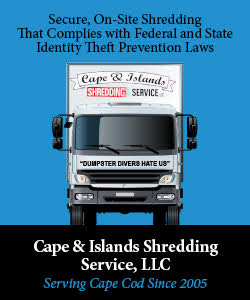Balancing the need for affordable housing with preserving open space has challenged Cape Cod for decades.
A new land use project between Housing Assistance Corporation and the Association To Preserve Cape Cod has a goal of addressing this challenge with a new tool to help Cape Cod towns plan for natural resource protection and community housing development.
The Grow Smart Cape Cod project, which features a website mapping tool and a set of recommendations, is the result of two years of collaboration between the two nonprofits.
“Cape Cod faces serious challenges in providing sufficient housing for its citizens and at the same time ensuring the protection of its remaining natural resource areas, including the region’s water resources,” said HAC CEO Alisa Magnotta.
The Grow Smart Cape Cod project seeks to reduce the competition between conservation and housing interests in land use decisions by underscoring the role of wastewater infrastructure development in helping to improve water quality, fostering housing density and affordability in identified priority housing areas, and protecting critical lands that support habitat, significant landscapes, drinking water, surface waters and other wetland resources.
By using the best available data and GIS technology, the Grow Smart Cape Cod’s interactive map highlights priority natural resource areas and priority areas for year-round moderate-density housing. Priority areas for natural resource protection and for housing are identified in each of the Cape’s 15 towns.
The project partners designed the maps to be useful for several audiences, including municipal staff and boards, housing advocates, land conservation advocates, developers, and citizen participants in town meetings and public forums.
“The map is intended to encourage more productive policy discussions by municipalities, advocates, and citizens on local land use to help address the region’s housing crisis and its environmental challenges. It highlights how environmental protection and housing development can co-exist to the benefit of the Cape,” said Andrew Gottlieb, Executive Director of APCC.
“Current local zoning laws have resulted in 82 percent of our housing inventory being single-family homes all mostly priced out of reach for local residents,” noted Magnotta. “Going forward, we need to move away from this development pattern and instead increase year-round housing that is affordable to those who live and work here through moderate-density development in priority housing areas. Our Smart Growth Cape Cod project will emphasize that housing development and protecting the environment can, and should, co-exist.”
Guiding affordable housing to locations already supported by wastewater infrastructure and other community services creates a better value in municipal investments and also relieves development pressure on the Cape’s sensitive natural resource areas, added Gottlieb.
“We also need to continue prioritizing preservation of critical habitat areas in order to sustain our environmental health, our blue economy, and our overall quality of life on Cape Cod,” he said. “If we are to preserve the Cape’s remaining resource areas and restore the quality of our natural environment, while at the same time addressing our housing needs, we must rethink our regional land use strategies before it’s too late.”
The Grow Smart Cape Cod project has six recommendations for towns to consider:
- Prioritize spending and available funding sources to leverage resources that will be beneficial for housing, wastewater infrastructure development and natural resource protection.
- Direct investments and local planning initiatives toward land identified in priority natural resource areas and priority housing areas by focusing efforts on acquisitions, regulatory requirements, and other land use policy decisions for this dual objective.
- Target housing production within identified housing areas and natural resource protection efforts in identified natural resource areas.
- Rezone land within identified priority natural resource areas to reduce development potential and sprawl.
- Rezone identified priority areas for housing to simplify and streamline the development of multi-family housing opportunities that are affordable and attainable for the Cape’s year-round population.
- Invest in wastewater infrastructure, which improves the affordability of housing construction and significantly benefits protecting water quality.
Cape Housing Institute Forums outlining how the maps were created and how to use them is scheduled to help navigate the new Grow Smart Cape Cod website and interactive map. The forums are scheduled for May 31, at 4 p.m. and June 21 at 10 a.m. Registration is available at www.haconcapecod.org.
“If Cape Cod is going to support a sustainable future as a desirable resort destination and a healthy community in and of itself, this kind of partnership is imperative,” said Magnotta.
Learn more about Grow Smart Cape Cod at GrowSmartCapeCod.org.
Funding for the project is provided by Barnstable County and its Economic Development Council License Plate Grant Program through the Cape Cod Commission.


























